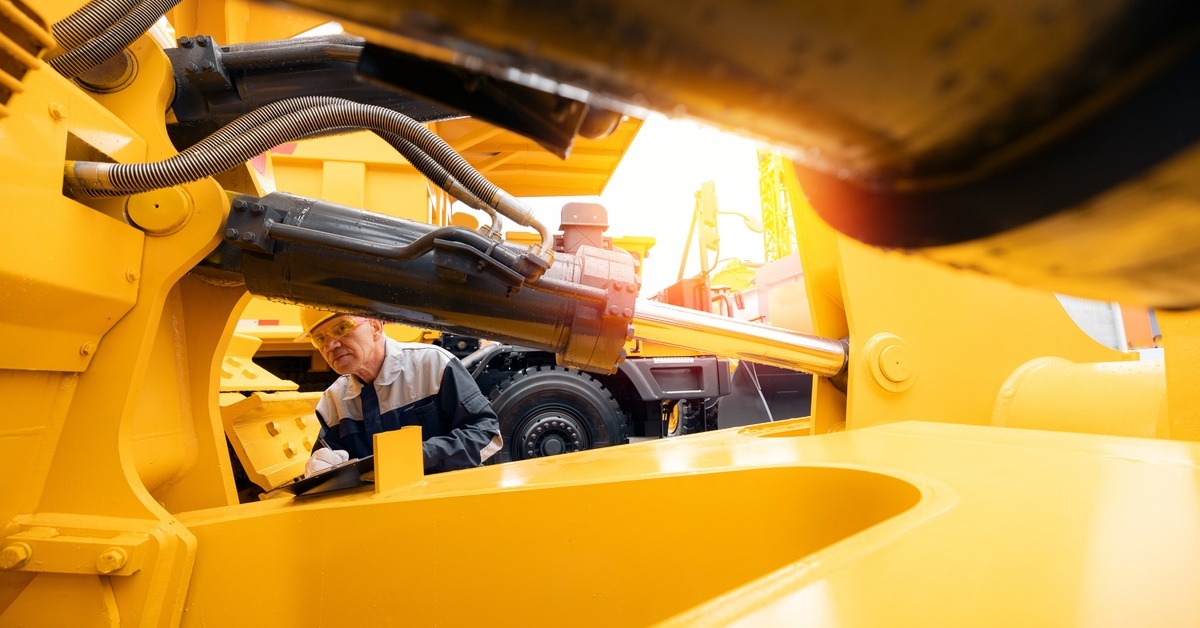Essential Maintenance Tips for Heavy Equipment Owners
Aug 5th 2025
Heavy equipment is a significant investment for any business. Whether you’re operating excavators on construction sites, using forestry equipment to clear land, or managing a fleet of mining machinery, maintenance can mean the difference between profitable operations and costly downtime. Regular upkeep extends equipment life, guarantees safety, heightens productivity, and protects your bottom line.
By using systematic care routines and following essential maintenance tips, heavy equipment owners can stay ahead of potential problems. From daily inspections to scheduled component replacements, every maintenance task serves a purpose in preserving your investment.
Every piece of heavy equipment comes with manufacturer-recommended maintenance intervals to support performance and longevity. These schedules typically include daily, weekly, monthly, and annual tasks that address different aspects of machine health. Following these guidelines prevents small issues from worsening.
Daily maintenance tasks usually include fluid level checks, visual inspections, and basic cleaning. Weekly routines might include greasing fittings, checking track tension, and inspecting hydraulic hoses. Monthly maintenance involves more thorough inspections of components, while annual services typically require professional attention for major system overhauls.
Creating a maintenance log for each machine helps you track completed tasks and upcoming requirements. Digital maintenance management systems can send automatic reminders and store service records, making it easier to stay on schedule. This documentation is also valuable for warranty claims and the resale of equipment.
Starting each workday with a comprehensive equipment inspection takes just 15–20 minutes and can prevent thousands of dollars in repair costs. Begin by checking all fluid levels, including engine oil, hydraulic fluid, coolant, and fuel. Low fluid may indicate leaks that require immediate attention.
Inspect tracks, tires, and undercarriage components for signs of excessive wear, damage, or debris accumulation. Look for loose bolts, cracked welds, or damaged hydraulic hoses. Additional, verify that all safety devices, including lights, alarms, and emergency stops, function properly. These quick visual checks often reveal problems before they cause catastrophic failures.
Pay special attention to unusual sounds, vibrations, or performance changes that occur during startup and operation. Experienced operators develop an ear for their equipment’s normal operating sounds and can identify when something sounds out of the ordinary. Document any concerns in your maintenance log, and address them promptly to prevent them from worsening.

Clean fluids are the lifeblood of heavy equipment. Engine oil lubricates moving parts and removes combustion byproducts, while hydraulic fluid transfers power throughout the machine’s systems. Contaminated or degraded fluids can cause accelerated wear and component failures, potentially sidelining equipment for weeks.
Regular fluid analysis provides valuable insights into the condition of equipment. Oil samples can reveal metal particles indicating excessive wear, coolant contamination suggesting seal failures, or fuel dilution indicating problems with the injection system. At Tractor Zone, we offer fluid analysis programs that help you identify issues before they cause breakdowns.
The undercarriage is one of the most expensive maintenance areas for tracked equipment. Taking care of tracks, rollers, idlers, and drive sprockets can extend component life and reduce operating costs. Daily cleaning removes debris that causes accelerated wear, while appropriate track tension prevents premature failure.
Track tension affects both performance and component longevity. Loose tracks reduce traction and cause excessive wear on drive components, while overtightened tracks strain the hydraulic system and accelerate track pad wear. Check the tension according to the manufacturer’s specifications, and adjust as needed based on operating conditions.
When undercarriage components do wear out, replace them immediately. Choosing high-quality aftermarket undercarriage parts can provide excellent value while sustaining high performance standards. Tractor Zone offers components that meet or exceed OEM specifications at competitive prices, controlling maintenance costs without sacrificing reliability.
Hydraulic systems power most functions on modern heavy equipment, including lifting, digging, steering, and braking. These systems operate under extreme pressures and temperatures, making maintenance important for reliable operation. Clean hydraulic fluid, functioning filters, and tight connections prevent most hydraulic problems.
Temperature management plays a necessary role in maintaining the health of hydraulic systems. Overheated fluid breaks down rapidly, losing its lubricating properties and causing component damage. Keep hydraulic coolers clean and support good airflow around cooling components. In addition, monitor operating temperatures and investigate any increases that could indicate system problems.
Heavy equipment engines operate under demanding conditions, so they need a lot of care for the sake of longevity and performance. Regular oil changes using manufacturer-specified lubricants protect internal components from wear and contamination. Air filter maintenance ensures clean combustion air, while fuel filters prevent contamination from reaching injection systems.
Cooling system maintenance prevents overheating, which can cause catastrophic engine damage. Clean radiators and oil coolers regularly to maintain heat transfer. Check coolant levels and concentration to confirm adequate freeze protection and corrosion inhibition. Finally, replace thermostats and water pumps according to the manufacturer’s schedules.
Engine performance monitoring helps to identify developing problems before they cause failures. Modern equipment includes diagnostic systems that provide valuable troubleshooting information when problems occur. Watch for changes in fuel consumption, power output, or exhaust smoke that could indicate internal problems.

Equipment maintenance needs change in response to varying operating conditions and seasonal fluctuations. Summer operations in dusty conditions require more frequent air filter changes and cooling system cleaning. Winter operations demand attention to fuel gelling, battery condition, and hydraulic fluid viscosity.
Preparing equipment for seasonal storage prevents damage during idle periods. Change fluids, clean equipment thoroughly, and protect exposed metal surfaces from corrosion. It’s best to store equipment in dry conditions when possible, and run machines periodically during extended storage to circulate fluids and maintain component condition.
Creating checklists for spring startup and winter preparation can make sure nothing gets overlooked during these necessary transition periods. Seasonal care prevents problems and ensures equipment is ready when needed.
Maintaining heavy equipment requires access to quality replacement parts. Establishing relationships with reliable suppliers, such as Tractor Zone, guarantees the availability of parts and technical support when problems arise. We have comprehensive inventories, provide expert technical assistance, and offer competitive pricing on both OEM and aftermarket components.
Quality aftermarket parts are excellent alternatives to OEM components at lower costs. Reputable aftermarket manufacturers design their products to meet or exceed original specifications while offering cost savings. With this approach, you can control your maintenance budget without compromising equipment reliability or performance.
Maintenance is an investment in your business’s success. Every hour spent on preventive care typically saves multiple hours of emergency repairs and lost productivity. By using these essential maintenance tips for heavy equipment owners, you’ll build a foundation for reliable operations and profitable equipment ownership.
Start implementing these practices immediately, beginning with daily inspections and fluid management. Develop comprehensive maintenance schedules for each machine, and establish relationships with reliable parts suppliers to enhance your maintenance effectiveness. Your equipment and your bottom line will benefit from this proactive approach to heavy machinery care.